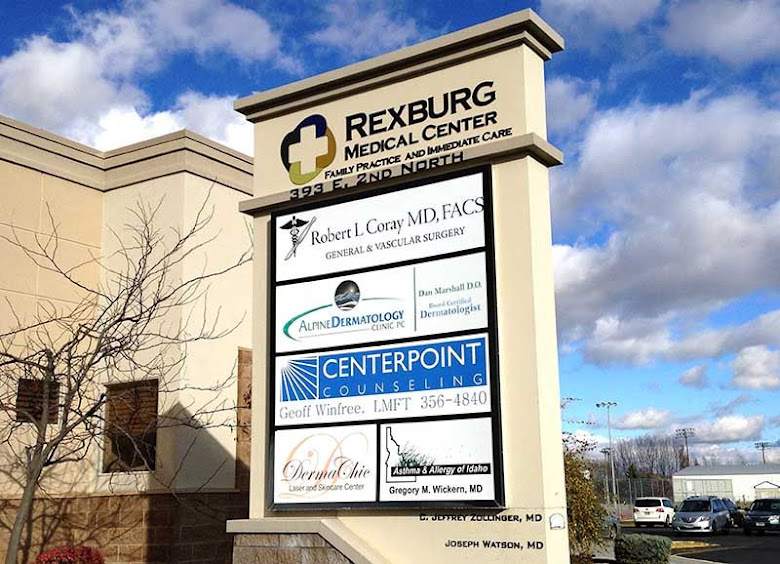About Pearl Health Clinic – Rexburg
Their clinical team includes experts in behavioral health and psychotherapy. These professionals bring a caring and spiritual perspective to recovery involving high ethical standards. So you’re sure to receive quality therapeutic support that respects your dignity. They even offer advanced therapy models like neurofeedback, EMDR and medication assisted treatment (MAT).
You’ll first undergo an intake assessment or evaluation. This helps them identify your unique therapy needs and create a custom care plan that tackles those needs. Their group counseling lets you share feelings and discomforts with others facing similar behavioral issues. This promotes community engagement and peer support. It’s a great avenue to enhance your social interaction skills, learn how to communicate better and build lasting friendships.
Individual counseling lets you tackle personal challenges and emotions head-on with the assistance of your primary therapist. Your primary therapist will monitor your recovery progress and adjust your personalized care plan when necessary.
Family therapy is all about resolving conflicts, rebuilding relationships and improving communication with the people you love. It promotes healthy family dynamics that strengthen your support network.
I like that you can access these therapies virtually thanks to their telehealth services. It’s also great that they accept Medicaid, Medicare and CHIP to ease payment. Sliding scale fee options are also available. This enables you to pay for services according to your income.
I think medication assisted treatment is their most important recovery program for substance misuse. This technique uses meds alongside behavioral therapy to treat opioid dependence or alcoholism. They primarily use Suboxone for this purpose to reduce withdrawal symptoms and curb cravings. That way you can safely receive individual, group and family therapy. This approach fosters lasting recovery by addressing both physical and psychological aspects of your addiction. Their MAT also involves regular urinalysis testing to monitor compliance and prevent potential medical issues.
Various community services are available to support your recovery efforts. This includes peer support, community based rehabilitation services (CBRS) and case management. Their CBRS offers a broad range of skill-building opportunities that help you manage daily challenges and sustain lasting recovery. Their case management may involve care coordination and linkage to community resources like stable housing and job placement. This can aid your lasting recovery efforts.
Latest Reviews
Rehab Score
Other Forms of Payment
Private insurance refers to any kind of healthcare coverage that isn't from the state or federal government. This includes individual and family plans offered by an employer or purchased from the Insurance Marketplace. Every plan will have different requirements and out of pocket costs so be sure to get the full details before you start treatment.
Self-pay involves paying for treatment out of your own pocket. You can use savings or credit, get a personal loan, or receive help from family and friends to fund your treatment. If you don't have insurance or your insurance plan doesn't cover a specific program, self-pay can help ensure you still get the care you need.
Medicaid is a state based program that helps lower-income individuals and families pay for healthcare. Medicaid covers addiction treatment so those enrolled can use their coverage to pay for rehab. When a program accepts Medicaid the client often pays very little or nothing out of their own pocket.
Medicare is a federal program that provides health insurance for those 65 and older. It also serves people under 65 with chronic and disabling health challenges. To use Medicare for addiction treatment you need to find a program that accepts Medicare and is in network with your plan. Out of pocket costs and preauthorization requirements vary, so always check with your provider.
Addiction Treatments
Levels of Care
Outpatient Programs (OP) are for those seeking mental rehab or drug rehab, but who also stay at home every night. The main difference between outpatient treatment (OP) and intensive outpatient treatment (IOP) lies in the amount of hours the patient spends at the facility. Most of the time an outpatient program is designed for someone who has completed an inpatient stay and is looking to continue their growth in recovery. Outpatient is not meant to be the starting point, it is commonly referred to as aftercare.
Intensive Outpatient Programs (IOP) are for those who want or need a very structured treatment program but who also wish to live at home and continue with certain responsibilities (such as work or school). IOP substance abuse treatment programs vary in duration and intensity, and certain outpatient rehab centers will offer individualized treatment programs.
Treatments
A combined mental health and substance abuse rehab has the staff and resources available to handle individuals with both mental health and substance abuse issues. It can be challenging to determine where a specific symptom stems from (a mental health issue or an issue related to substance abuse), so mental health and substance abuse professionals are helpful in detangling symptoms and keeping treatment on track.
Programs
Adult rehab programs include therapies tailored to each client's specific needs, goals, and recovery progress. They are tailored to the specific challenges adult clients may face, including family and work pressures and commitments. From inpatient and residential treatment to various levels of outpatient services, there are many options available. Some facilities also help adults work through co-occurring conditions, like anxiety, that can accompany addiction.
Clinical Services
Cognitive Behavioral Therapy (CBT) is a therapy modality that focuses on the relationship between one's thoughts, feelings, and behaviors. It is used to establish and allow for healthy responses to thoughts and feelings (instead of unhealthy responses, like using drugs or alcohol). CBT has been proven effective for recovering addicts of all kinds, and is used to strengthen a patient's own self-awareness and ability to self-regulate. CBT allows individuals to monitor their own emotional state, become more adept at communicating with others, and manage stress without needing to engage in substance abuse.
Group therapy is any therapeutic work that happens in a group (not one-on-one). There are a number of different group therapy modalities, including support groups, experiential therapy, psycho-education, and more. Group therapy involves treatment as well as processing interaction between group members.
In individual therapy, a patient meets one-on-one with a trained psychologist or counselor. Therapy is a pivotal part of effective substance abuse treatment, as it often covers root causes of addiction, including challenges faced by the patient in their social, family, and work/school life.
Couples therapy provides the opportunity to discuss challenges in the relationships and learn healthy ways to work through them. Therapy may address issues such as your roles, beliefs, finances, health, substance use, and children.
Research clearly demonstrates that recovery is far more successful and sustainable when loved ones like family members participate in rehab and substance abuse treatment. Genetic factors may be at play when it comes to drug and alcohol addiction, as well as mental health issues. Family dynamics often play a critical role in addiction triggers, and if properly educated, family members can be a strong source of support when it comes to rehabilitation.
Life skills trainings involve all the skills a person must have in order to function successfully in the world. These include time management, career guidance, money management, and effective communication. Truly successful addiction recovery is based on the ability to not only live substance-free, but to thrive. Life skills teaches the practical necessities of functioning in society, which sets clients up for success in life, and therefore sobriety.
Staff

Zak Warren, LCPC
Executive Director

Bonita Avery, LCPC
Clinical Director

Austin Page
Administrator
Contact Information
264 E Main Street
Rexburg, ID 83440
